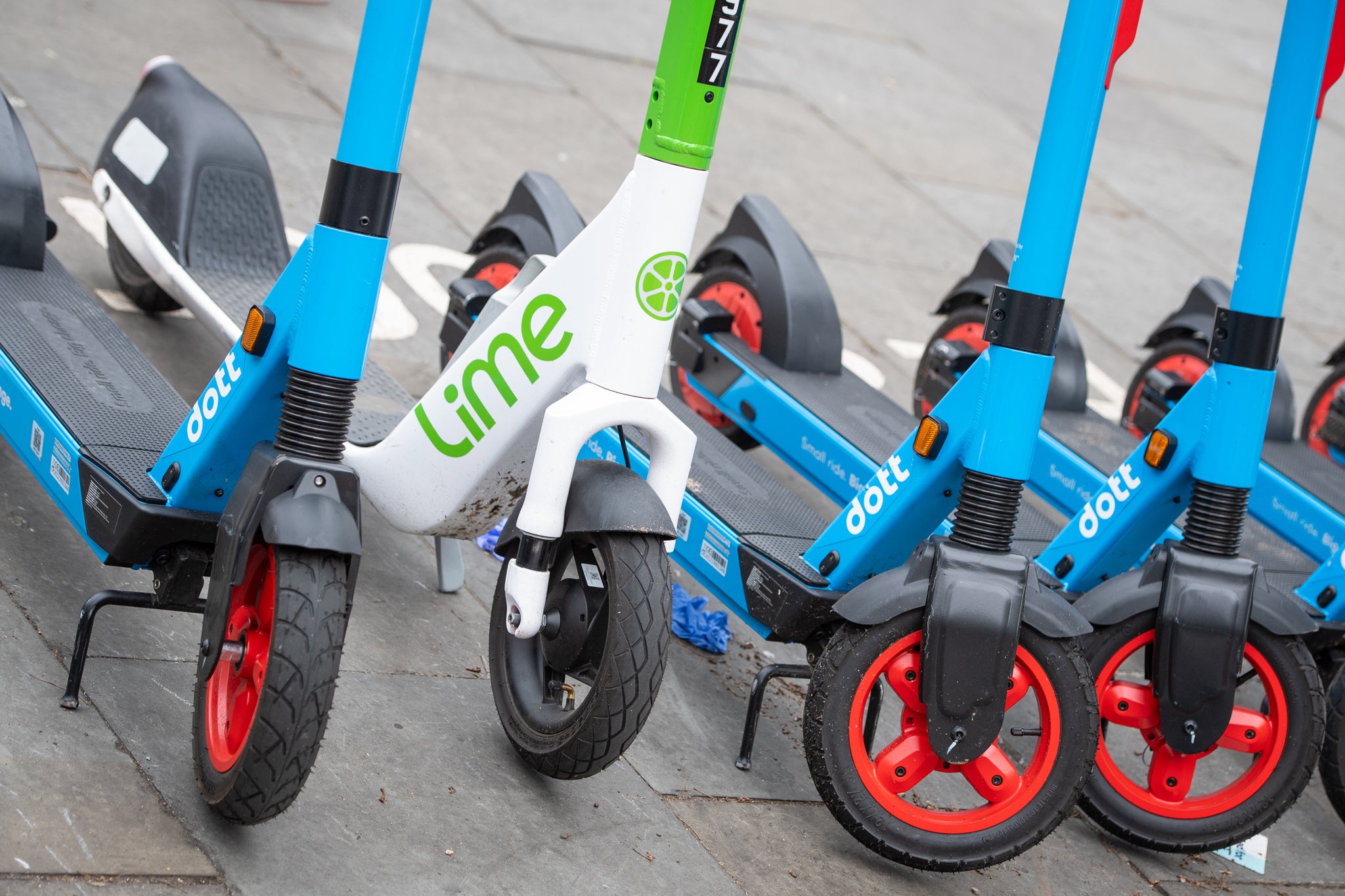E-scooter trials extended despite spike in pedestrian injuries
Local authorities have the option of continuing pilot schemes for rental e-scooters until the end of May 2024.

Your support helps us to tell the story
From reproductive rights to climate change to Big Tech, The Independent is on the ground when the story is developing. Whether it's investigating the financials of Elon Musk's pro-Trump PAC or producing our latest documentary, 'The A Word', which shines a light on the American women fighting for reproductive rights, we know how important it is to parse out the facts from the messaging.
At such a critical moment in US history, we need reporters on the ground. Your donation allows us to keep sending journalists to speak to both sides of the story.
The Independent is trusted by Americans across the entire political spectrum. And unlike many other quality news outlets, we choose not to lock Americans out of our reporting and analysis with paywalls. We believe quality journalism should be available to everyone, paid for by those who can afford it.
Your support makes all the difference.Trials of e-scooters have been extended by 18 months despite a surge in the number of pedestrians injured by the contraptions.
Transport minister Trudy Harrison announced that English local authorities have the option of continuing pilot schemes for rental e-scooters until the end of May 2024.
This will allow the Government to “gather further evidence where gaps are identified, building on the findings of the current evaluation”.
Department for Transport statistics show 223 pedestrians were injured after being hit by e-scooters in Britain last year, including 63 who were seriously hurt.
That is up from a total of 57 casualties in 2020, with just 13 suffering serious injuries.
Rental e-scooters are currently being trialled in 30 areas across England.
The schemes were initially due to run for just over a year to November 2021, but the deadline was pushed back to March and then November.
In a response to a written parliamentary question, Ms Harrison expressed hope that “all areas will want to continue” but there is “no compulsion”.
A spokesman for charity Guide Dogs described the decision to further extend the trials before publishing any findings as “disappointing”.
He said: “The Government should publish their current evaluation and set priorities for their evaluation of the 18-month extension.
“The safety of pedestrians must be at the heart of this, including the safety of blind or partially sighted people.
Visually impaired people are already being forced to change their behaviour because of e-scooters, with some changing their regular routes and others not leaving home alone
“Guide Dogs research shows that nearly 75% of people with sight loss who have encountered an e-scooter have had a negative experience.
“Visually impaired people are already being forced to change their behaviour because of e-scooters, with some changing their regular routes and others not leaving home alone.”
The spokesman warned that the use of private e-scooters – which are often used on public roads and pavements in the UK despite being banned – will “only grow without enforcement of the law”.
He added: “The Government must work with police to ensure the law is enforced and people know it remains illegal to ride a private e-scooter on public land.”
Subscribe to Independent Premium to bookmark this article
Want to bookmark your favourite articles and stories to read or reference later? Start your Independent Premium subscription today.